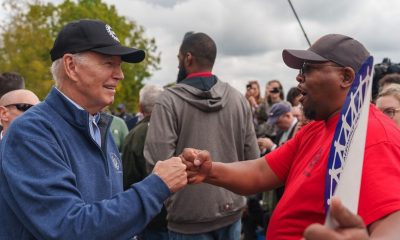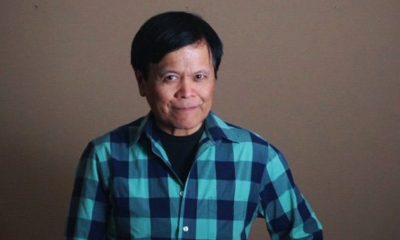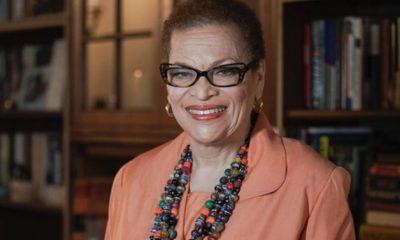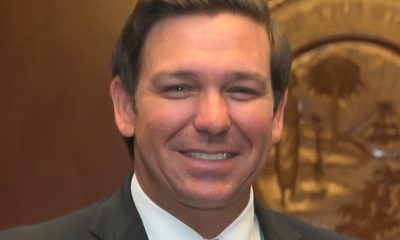Politics
Amid Criticism, Clinton Sticks to Low-Key Campaign Strategy

Democratic presidential candidate Hillary Rodham Clinton stops at Em’s Coffee Co., Tuesday, May 19, 2015, in Independence, Iowa. (AP Photo/Charlie Neibergall)
JULIE PACE, AP White House Correspondent
CEDAR FALLS, Iowa (AP) — During two days of campaigning this week in Iowa, Hillary Rodham Clinton didn’t make a formal speech. She answered questions from reporters, but only for five minutes. Pressed by a moderator at her own event to say where she stood on a trade pact that’s dividing her party, she steered clear.
It was the kind of trip that infuriates her Republican critics, yet gives them fodder to keep up their argument she’s a candidate dodging tough issues and avoiding taking positions that could haunt her politically. That’s started to worry some Democrats, who are publicly prodding Clinton to wade deeper into the political fray and pick a side on the Trans-Pacific Partnership free trade deal.
Clinton and her team are unmoved. They’re sticking to their plans for a low-key start to her second presidential campaign, displaying an early level of discipline that was lacking when Clinton sought the White House in 2008 and struggled with campaign infighting over strategy.
It’s an approach they’ve crafted to show voters Clinton isn’t taking the Democratic nomination for granted. Yet by not taking a stand on issues of the day and dismissing some of the traditional trappings of presidential campaigns, some political operatives say Clinton risks appearing as if she’s doing just that.
“There is a demand if you are a candidate to signify a lack of entitlement by submitting yourself to questions from the news media on a regular basis,” said David Axelrod, a longtime adviser to President Barack Obama. “There is risk to that, but it is a risk that comes along with the task of running for president.”
Before a brief exchange with reporters Tuesday, Clinton hadn’t taken questions from the press in nearly a month. Republican presidential hopefuls seized on her reluctance to engage with reporters and repeatedly mocked her for ducking questions.
“You can’t script your way to the presidency,” said Jeb Bush, the former Florida governor.
So far, Clinton’s campaign does have the appearance of a carefully choreographed operation. Each of her stops in the early-voting states has looked similar to her two-day swing through Iowa this week, where she attended a meet-and-greet with local officials and campaign volunteers at a home in Mason City, discussed economic policy with small business owners at a bicycle shop in Cedar Falls, and dropped by a coffee shop in Independence for an espresso and sandwich.
The house party she attended in Mason City was invitation-only and, as with her past policy roundtables, participants at the small business event were selected by the campaign.
Even when unexpected moments arise, Clinton sticks to her script. When a small business owner asked her Tuesday to state her position on the Trans-Pacific Partnership trade pact, Clinton politely refused.
“I want to judge the final agreement,” she said.
Clinton’s advisers intended her campaign to start slowly. She will hold a more formal campaign kick-off next month, likely with a major speech and a series of one-on-one interviews. But even as the campaign enters that phase, aides say Clinton will still do the smaller events like those she’s held so far.
Though she never mentioned her critics directly, Clinton pushed back this week at those who say she should be taking a different approach.
“Somebody asked me the other day, ‘Well, you’re going to these events where you’re taking time to actually talk and listen to people, is that really what you’re going to do?'” she said Monday. “And I said, ‘Well, yes it is.'”
Clinton’s advisers also dispute the notion she is avoiding taking positions on policy, pointing to her backing of Obama’s executive actions on immigration and her call to outfit police departments with body cameras. On Tuesday, she voiced her opposition to Republican-backed legislation that would revamp the 2010 Dodd-Frank financial regulation law.
But each was unveiled as part of a careful rollout by Clinton’s campaign. She’s been far less willing to weigh in on issues that don’t fit with her campaign schedule, including the fall of Ramadi to Islamic State militants in Iraq over the weekend.
Clinton’s sidestepping on the Asia-Pacific trade pact has been most notable, given that Congress is currently debating whether to give Obama the ability to seek faster ratification of a final deal.
While Clinton called the pact the “gold standard” of trade agreements while serving as secretary of state, she has refused to take a position on the deal since announcing her candidacy.
As Clinton spoke to small business owners in Cedar Falls on Tuesday, a small group of protesters stood outside demanding she clarify her stance on the trade pact. Chris Schwartz, an Iowa organizer with the liberal group Americans for Democratic Action, said Clinton’s silence was “troubling.”
“People in Iowa and people across the country want to know the specifics on all of these issues, including TPP,” Schwartz said, referring to the Trans-Pacific Partnership. “We have a right to have our questions answered.”
___
Follow Julie Pace on Twitter at: http://twitter.com/jpaceDC
Copyright 2015 The Associated Press. All rights reserved. This material may not be published, broadcast, rewritten or redistributed.
Alameda County
Board of Supervisors Accepts Certification of Signatures, Will Schedule Recall Election May 14
The Alameda Board of Supervisors unanimously accepted the certification of the results of the valid signatures submitted for the recall of District Attorney Pamela Price on Tuesday evening. The Board will set the election date at a special meeting on May 14. Before the meeting, recall proponents and opponents held separate press conferences to plead their cases to the Board and residents of Alameda County.
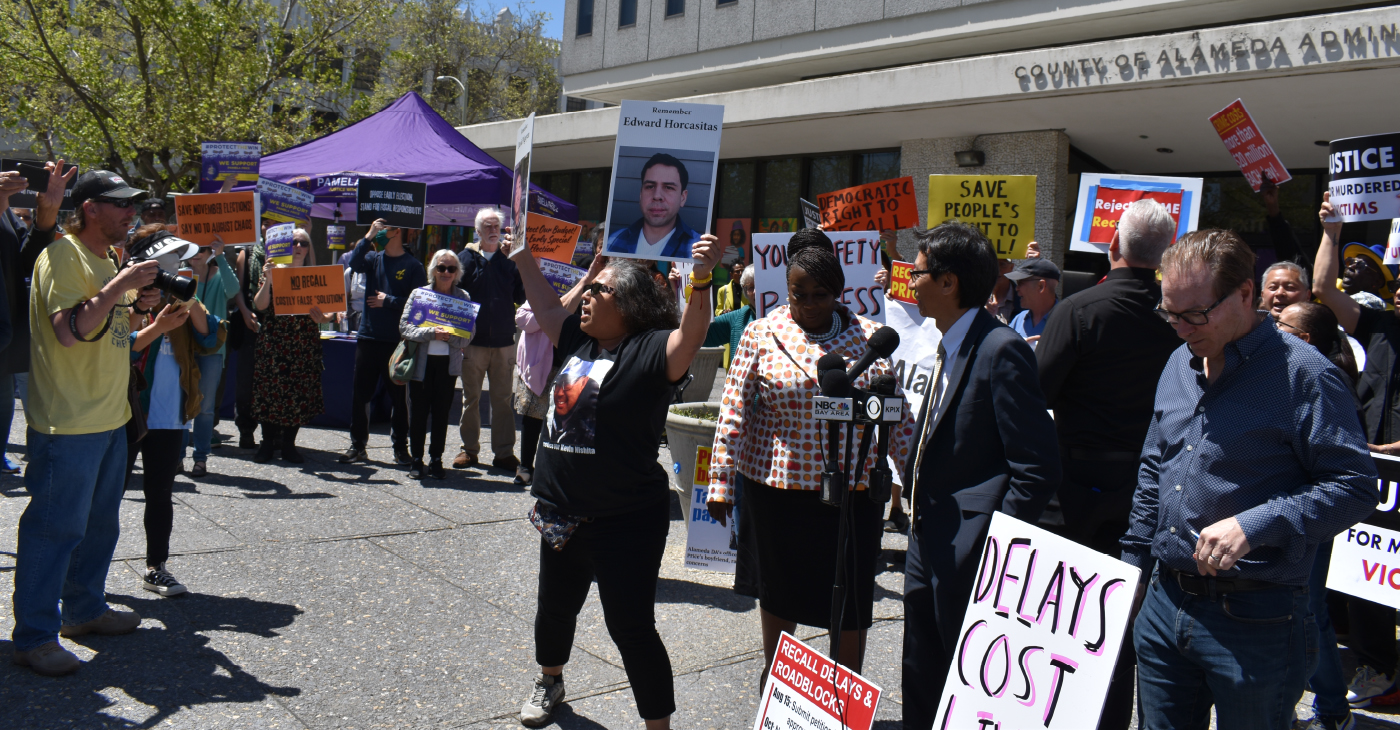
By Magaly Muñoz
The Alameda Board of Supervisors unanimously accepted the certification of the results of the valid signatures submitted for the recall of District Attorney Pamela Price on Tuesday evening. The Board will set the election date at a special meeting on May 14.
Before the meeting, recall proponents and opponents held separate press conferences to plead their cases to the Board and residents of Alameda County.
Price, who up until this point has made little public comment about the recall, held her press conference in Jack London to announce that the California Fair Political Practices Commission has opened an investigation into the finances of the Save Alameda For Everyone (SAFE) recall campaign.
The political action committee (PAC), Reviving the Bay Area, has been the largest contributor to the SAFE organization and has allegedly donated over half a million dollars to the recall efforts.
“Between September 2023 and November 2023, [Revive the Bay Area] donated approximately $578,000 to SAFE without complying with the laws that govern all political committees in California,” Price said.
Price accused the recall campaigns of using irregular signature-gathering processes, such as paying gatherers per signature, and using misleading information to get people to sign their petitions.
SAFE held their own press conference outside of the Alameda County Administration Building at 1221 Oak St. in Oakland, once again calling for the Board to certify their signatures and set a date for the recall election.
Their press conference turned contentious quickly as Price’s “Protect the Win” supporters attempted to yell over the SAFE staff and volunteers. “Stop scapegoating Price” and “Recall Price” chants went on for several moments at a time during this event.
Families of victims urged the Board to think of their loved ones whose lives are worth much more than the millions of dollars that many opponents of the recall say is too much to spend on a special election.
The Registrar of Voters (ROV) estimates the special election could cost anywhere from $15 to $20 million, an amount that is not in their budget.
The Board was presented with several options on when and how to conduct the recall election. They have to set a date no less than 88 days or more than 125 days after May 14, meaning the date could fall anywhere from late July to September.
But the County charter also states that if a general election takes place within 180 days of their scheduling deadline, the Board could choose to use the November ballot as a way to consolidate the two events.
In the event that Price is recalled, the Supervisors would appoint someone to fill the vacancy, though neither the County nor the California charter specifies how long they would have to pick a replacement.
The appointee would serve as district attorney spot until the next election in 2026. Afterwards, either they, if they run and win, or a newly elected candidate would serve the rest of Price’s six-year term until 2029. Price is unique as the only district attorney wo serves a term of six years.
The Board acknowledged that they knew last fall that this recall would come with its own set of complications when Measure B, which changed the local recall charter to match California’s, was first brought to their consideration.
Supervisors Nate Miley and David Haubert opposed discussing the measure, stating that the public would think that the Board was attempting to influence the recall campaign that had already taken off months prior.
“I think ultimately this feels like it’s going to end up in court, one way or the other, depending on who files what,” Haubert said.
Price’s legal team told the Post that the district attorney intended to consider all legal options should the recall election take place.
Miley stated that while he was in support of the amendment to the charter, he did not think it was right to schedule it for the March ballot as it would ultimately cause confusion for everyone involved.
“It has produced some legal entanglements that I think, potentially, could’ve been avoided,” Miley said.
Commentary
Opinion: Lessons for Current Student Protesters From a San Francisco State Strike Veteran
How the nation’s first College of Ethnic studies came about, bringing together Latino, African American and Asian American disciplines may offer some clues as to how to ease the current turmoil on American college campuses over the Israel-Hamas war. After the deadline passed to end the Columbia University encampment by 2 p.m. Monday, student protesters blockaded and occupied Hamilton Hall in a symbolic move early Tuesday morning. Protesters did the same in 1968.

By Emil Guillermo
How the nation’s first College of Ethnic studies came about, bringing together Latino, African American and Asian American disciplines may offer some clues as to how to ease the current turmoil on American college campuses over the Israel-Hamas war.
After the deadline passed to end the Columbia University encampment by 2 p.m. Monday, student protesters blockaded and occupied Hamilton Hall in a symbolic move early Tuesday morning.
Protesters did the same in 1968.
That made me think of San Francisco State University, 1968.
The news was filled with call backs to practically every student protest in the past six decades as arrests mounted into hundreds on nearly two dozen campuses around the country.
In 1970, the protests at Kent State were over the Vietnam War. Ohio National Guardsmen came in, opened fire, and killed four students.
Less than two weeks later that year, civil rights activists outside a dormitory at Jackson State were confronted by armed police. Two African American students were killed, twelve injured.
But again, I didn’t hear anyone mention San Francisco State University, 1968.
That protest addressed all the issues of the day and more. The student strike at SFSU was against the Vietnam war.
That final goal was eventually achieved, but there was violence, sparked mostly by “outside agitators,” who were confronted by police.
“People used the term ‘off the pigs’ but it was more rally rhetoric than a call to action (to actually kill police),” said Daniel Phil Gonzales, who was one of the strikers in 1968.
Gonzales, known as the go-to resource among Filipino American scholars for decades, went on to teach at what was the positive outcome of the strike, San Francisco State University’s College of Ethnic Studies. It’s believed to be the first of its kind in the nation. Gonzales recently retired after more than 50 years as professor.
As for today’s protests, Gonzales is dismayed that the students have constantly dealt with charges of antisemitism.
“It stymies conversation and encourages further polarization and the possibility of violent confrontation,” he said. “You’re going to be labeled pro-Hamas or pro-terrorist.”
That’s happening now. But we forget we are dealing not with Hamas proxies. We are dealing with students.
Gonzales said that was a key lesson at SF State’s strike. The main coalition driving the strike was aided by self-policing from inside of the movement. “That’s very difficult to maintain. Once you start this kind of activity, you don’t know who’s going to join,” he said.
Gonzales believes that in the current situation, there is a patch of humanity, common ground, where one can be both pro-Palestine and pro-Israel. He said it’s made difficult if you stand against the belligerent policies of Benjamin Netanyahu. In that case, you’re likely to be labeled antisemitic.
Despite that, Gonzales is in solidarity with the protesters and the people of Gaza, generally. Not Hamas. And he sees how most of the young people protesting are in shock at what he called the “duration of the absolute inhumane kind of persecution and prosecution of the Palestinians carried out by the Israeli government.”
As a survivor of campus protest decades ago, Gonzales offered some advice to the student protesters of 2024.
“You have to have a definable goal, but right now the path to that goal is unclear,” he said.
About the Author
Emil Guillermo is a journalist and commentator. A veteran newsman in TV and print, he is a former host of NPR’s “All Things Considered.”
Community
Gov. Newsom, Attorney General Bonta Back Bill to Allow California to Host Arizona Abortion Care
Gov. Gavin Newsom and Attorney General Rob Bonta announced last week that they are backing a bill introduced by the state legislative women’s caucus that would allow Arizona-based doctors to provide abortion care in California to patients from Arizona. Senate Bill (SB) 233 was authored in response to the Arizona Supreme Court’s decision on April 9 that an 1864 ban on abortion in the state is enforceable.
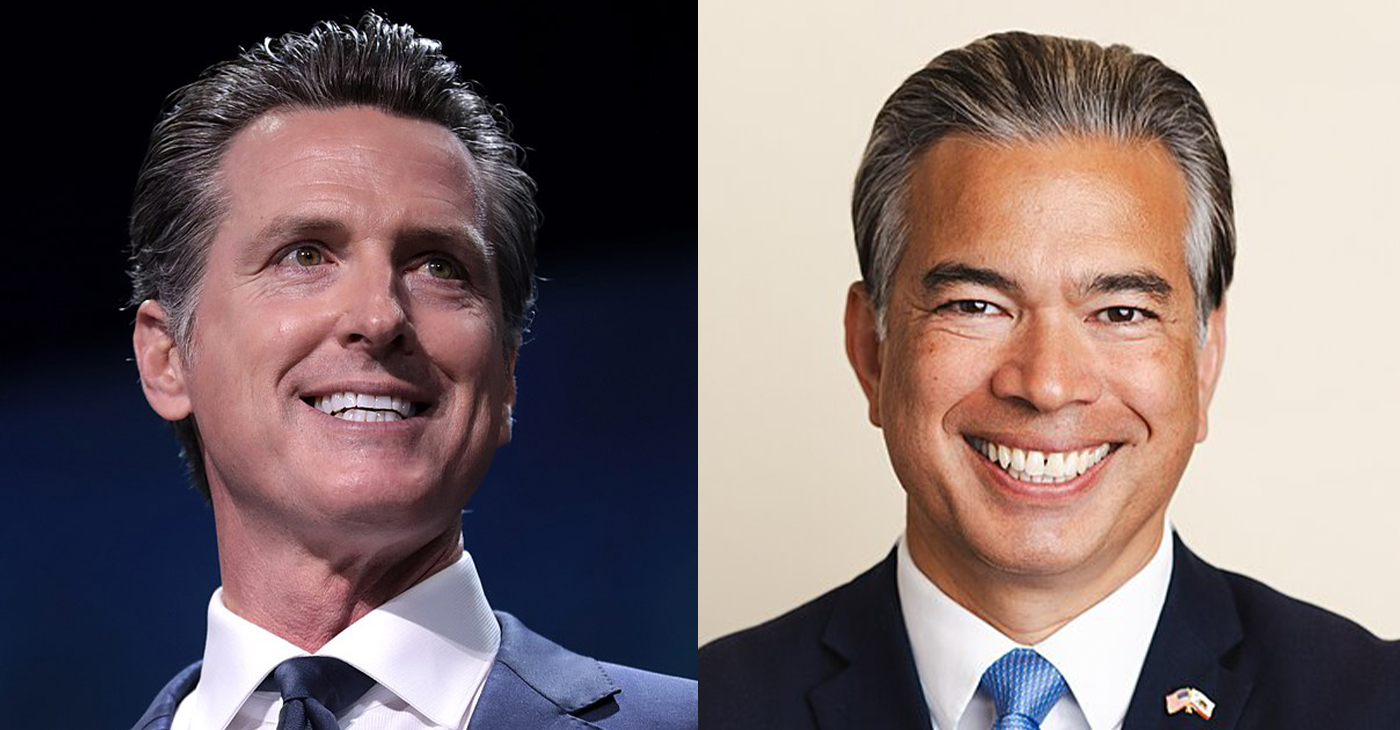
By California Black Media
Gov. Gavin Newsom and Attorney General Rob Bonta announced last week that they are backing a bill introduced by the state legislative women’s caucus that would allow Arizona-based doctors to provide abortion care in California to patients from Arizona.
Senate Bill (SB) 233 was authored in response to the Arizona Supreme Court’s decision on April 9 that an 1864 ban on abortion in the state is enforceable. The bill also aims to counter growing support for anti-abortion legislation in states with Republican-majority legislatures since Roe v. Wade was overturned, according to supporters.
“California will not sit idly by. We’re urgently moving legislation to allow Arizona doctors to provide safe and reliable reproductive care to Arizonans here in California,” Newsom said.
Sen. Nancy Skinner (D-Berkeley), chair of the California Legislative Women’s Caucus said that abortion bans are based on laws that set women back to a time when they had limited human rights.
“Anti-abortion forces have resurrected a dead law passed at a time when women couldn’t vote and husbands beating their wives was lawful,” Skinner said.
On April 24, the Arizona House of Representatives voted to repeal the 1864 abortion ban. It now moves to the Arizona Senate for deliberation.
-

 Community2 weeks ago
Community2 weeks agoFinancial Assistance Bill for Descendants of Enslaved Persons to Help Them Purchase, Own, or Maintain a Home
-

 Activism4 weeks ago
Activism4 weeks agoOakland Post: Week of April 3 – 6, 2024
-

 Business2 weeks ago
Business2 weeks agoV.P. Kamala Harris: Americans With Criminal Records Will Soon Be Eligible for SBA Loans
-

 Activism3 weeks ago
Activism3 weeks agoOakland Post: Week of April 10 – 16, 2024
-

 Community2 weeks ago
Community2 weeks agoAG Bonta Says Oakland School Leaders Should Comply with State Laws to Avoid ‘Disparate Harm’ When Closing or Merging Schools
-

 Community2 weeks ago
Community2 weeks agoOakland WNBA Player to be Inducted Into Hall of Fame
-

 Community2 weeks ago
Community2 weeks agoRichmond Nonprofit Helps Ex-Felons Get Back on Their Feet
-

 Community2 weeks ago
Community2 weeks agoRPAL to Rename Technology Center for Retired Police Captain Arthur Lee Johnson

